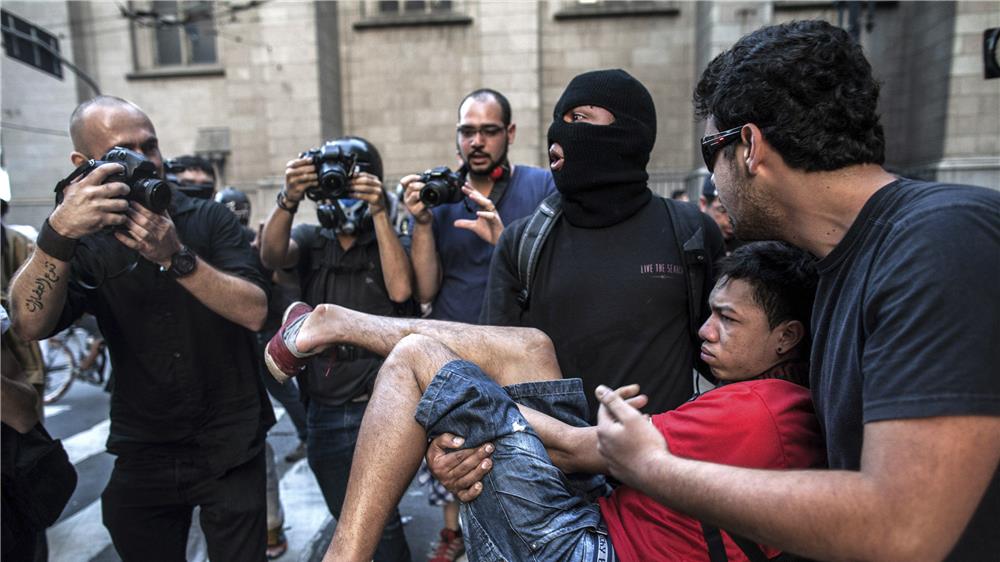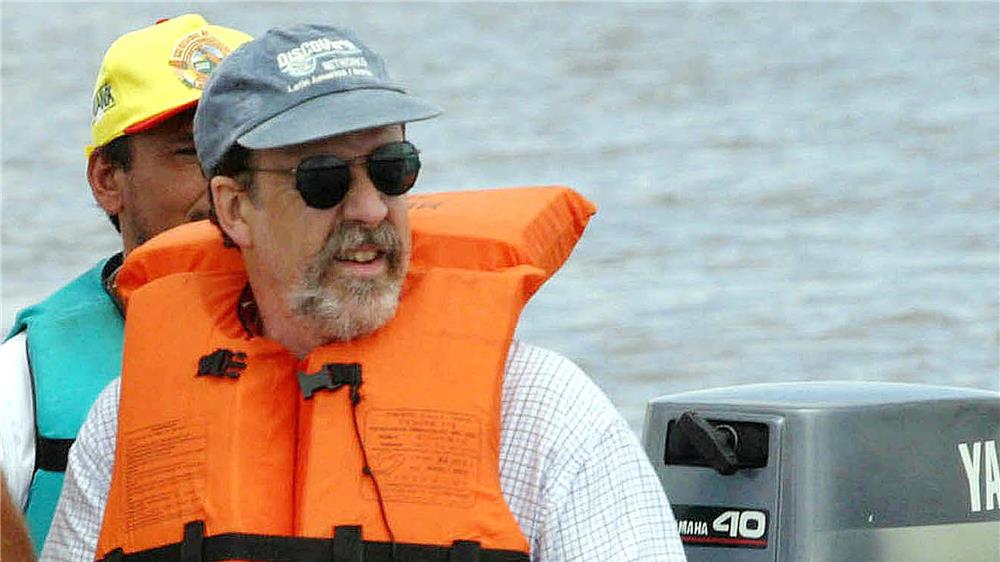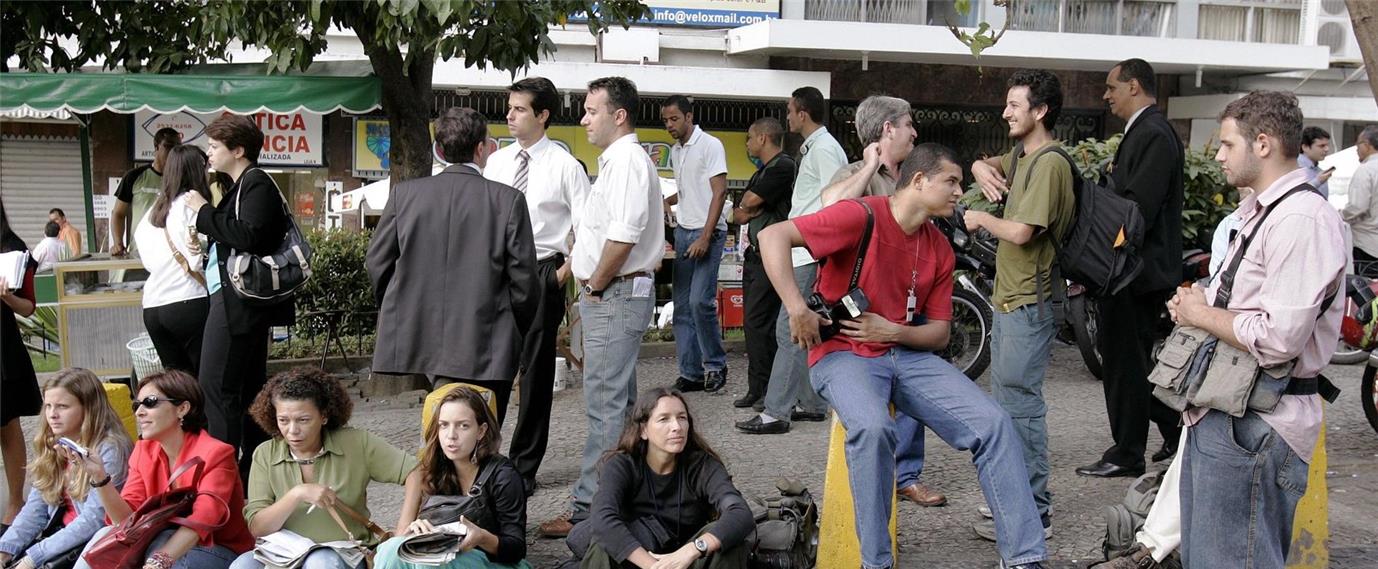توجد في البرازيل ثلاث منظمات للمراسلين والصحفيين الأجانب، أصغرها في العاصمة برازيليا وتضم 15 صحفيا يعملون مع وكالات أنباء عالمية متعددة. والأخرى في ريو دي جانيرو، وتضم 125 مراسلا من 25 دولة -بينهم "إسرائيليون" وليس بينهم أي مراسل عربي- يعملون مع 136 وسيلة إعلام أجنبية. وأقدمها رابطة المراسلين الأجانب في ساوباولو، وتأسست في البداية تحت اسم "مجتمع الصحافة الأجنبية" في البرازيل عام 1977، عندما أطلق المبادرة 30 صحفياً أجنبياً في منزل جان روشا، مراسلة هيئة الإذاعة البريطانية (بي.بي.سي)، حيث كان أغلب الصحفيين الأجانب في ذلك الوقت يعملون من مدينة ريو دي جانيرو أكثر من ساوباولو، أي أن هذه المنظمة تأسست في الفترة التي كانت البرازيل ترزح فيها تحت الحكم الدكتاتوري العسكري الذي وضع الكثير من القيود على عمل الصحفيين الأجانب، وتعامل معهم كأعداء محتملين، فبدأ بمراقبة تحركاتهم وهواتفهم، خاصة أنهم في ذلك الوقت بدؤوا تناول مسألة الحريات والقمع والاعتقالات وعمليات الإعدام التعسفية. وما إن انتهت هذه الحقبة السوداء في تاريخ البلاد، حتى أتيح لأعضاء هذه المنظمات إجراء المقابلات والاجتماع مع زعماء البلاد كالرئيس تانكريدو نيفيس عام 1985، والرئيس فرناندو إنريكي كاردوسو عام 1995، ومع لولا دا سيلفا وديلما روسيف فيما بعد، في دلالة واضحة على التغيير الذي انعكس على العمل الصحفي بشكل واضح.
في العام 1999 تغيّر اسم المنظمة العاملة في ساوباولو لتصبح "رابطة المراسلين الأجانب"، وكان واضحا تغيّر علاقة السلطة مع المنظمة بعد انتهاء حكم الدكتاتورية العسكرية ووصول لولا دا سيفا وديلما روسيف من بعده باتجاه الأفضل بشكل عام، رغم ظهور بعض المشاكل بين الحين والآخر، كما حدث مع الصحفي الأميركي وليام لاري روتر عام 2004 -وهو مراسل نيويورك تايمز وأحد أعضاء المنظمة- عندما وصف الرئيس البرازيلي السابق لولا دا سيلفا بأنه "يتعاطى الكحوليات بصورة مفرطة"، لتقوم بعدها وزارة العدل البرازيلية بطرده من البلاد بعد سحب ترخيص عمله وتأشيرة دخوله، وهو ما دعا رئيسة الرابطة حينها البيروفية فيرونيكا جويزويتا إلى المطالبة بتنظيم مظاهرات احتجاج على القرار في ساوباولو وريو دي جانيرو، كما أصدرت بيانا يندد بهذا الإجراء ويلمّح إلى أنه لا يختلف عن إجراءات الحكومات العسكرية السابقة. وقد أعلنت حينها العديد من الشخصيات السياسية والحزبية تضامنها مع الرابطة.
أصدرت الرابطة في ساوباولو كتابين: الأول عام 2003 ويتضمن تقارير الأعضاء حول حرب العراق، والثاني عام 2008 يتناول طبيعة عمل الصحفيين الدوليين في البرازيل.
وكان الهدف من تأسيس الرابطة تسهيل وتنظيم عمل الصحفيين الأجانب وتقديم الدعم والمعلومات لهم. وفي العام 2005 وُجّهت دعوات إلى اجتماع عام حضره أغلبية الأعضاء لتحديد أهداف الرابطة وقواعد العمل وآلية الانتخاب وشروط الانتساب إليها. ومن بين هذه الشروط، أن يكون الصحفي أجنبيا يعمل مع وسائل إعلام أجنبية خارج البرازيل، وأن يقيم في البرازيل ويدفع اشتراكه السنوي. أما حقوق الأعضاء فهي الحصول على بطاقة العضوية وحضور المناسبات والفعاليات العامة، والولوج الكامل إلى الموقع الإلكتروني للرابطة، والحصول على المعلومات المتعلقة بالتغطية الصحفية يوميا عبر البريد الإلكتروني، إضافة إلى الحق في الانتخاب والترشح، والحصول على أسعار مخفضة لحضور وتغطية الكثير من الفعاليات.
أما أهداف الرابطة فتتلخص في أهمية زيادة عدد الأعضاء والحصول على مقر دائم للنشاطات، وتطوير الموقع الإلكتروني، وتنظيم الرحلات لتعريف الصحفيين بالبلاد.
تتألف قيادة الرابطة من رئيس، ونائب رئيس، وأمين صندوق، يُنتخبون مرة كل ثلاث سنوات، ويعتبر عملهم تطوعياً، أي بلا أجر.
لا بدَّ من متاعب
بحسب الرابطة، يوجد نحو 300 صحفي أجنبي في البرازيل، تمنحهم وزارة الخارجية البرازيلية تأشيرة دخول إلى الأراضي لمدة سنتين فقط، وتُجدّد عند انتهائها، مع أن القانون يحدد فترة الإقامة للصحفيين الأجانب بأربع سنوات، تُجدَّد عند انتهائها. وهم بحسب الرئيسة السابقة للرابطة فيرونيكا جويزويتا "مضطرون في أحيان كثيرة للعمل في المناطق البعيدة والنائية، حيث العنف والإجرام والنزاع الدائم على الأراضي". لعل واحدة من أبرز الحوادث، ما حصل في فبراير/شباط 2016 مع جوليانا بارباسا وبيير غيرا مراسلي مجلتي Americas Quarterly وUS News And world Report في ولاية روندونيا شمال غربي البرازيل عندما ذهبا لتغطية الصدامات بين الفلاحين ومالكي الأراضي، فتعرّضا للاعتداء، ولسرقة بعض الأجهزة والمعدات التي تحتوي على معلومات حول الحادثة من سيارتهما، في حين رفضت الشرطة الاستجابة لشكواهما، أو تقديم أي مساعدة لهما، لا بل حضرت لتفرض شروطها على الصحفيين، وهو ما اضطر الرابطة لإصدار بيان ناشدت فيه الرئيسة ديلما التدخل من أجل التحقيق حول أسباب عدم تدخل الشرطة، خاصة أن حرية الصحافة مصانة في البرازيل بموجب الدستور. إلا أنه رغم كل ذلك، تعتبر فيرونيكا أن "العمل اليوم أفضل بكثير من العمل في مرحلة حكم الدكتاتورية العسكرية".

مشكلة أخرى تعترض العمل الصحفي، وهي أن مساحة البلاد ضخمة، وأن أغلب الصحفيين يتواجدون في ولايتي ساوباولو وريو دي جانيرو، أي أنهم بعيدون عن مركز القرار في برازيليا. من جهة أخرى تعتبر فيرونيكا أن "من يعمل في برازيليا يواجه إشكالية الابتعاد عن الفعاليات الثقافية والاجتماعية الكبرى التي تحتضنها عادة ساوباولو وريو دي جانيرو"، وهو ما تؤكّده جان روشا -صاحبة أول عضوية بالرابطة- إذ تعتبر أن "مساحة البلاد شاسعة، حيث يضطر الصحفي في أحيان كثيرة أن يسافر من ساوباولو إلى الأمازون للتغطية"، في حين يعتبر كارلوس لينس دا سيفا مؤلف كتاب "المراسلون الأجانب" أن "واحدة من أكبر مشاكل المراسلين الأجانب، أنهم بعد مضي فترة على إقامتهم في البرازيل، يبدؤون النظر إلى الأحداث بأعين وسائل الإعلام البرازيلية، وهو ما يزيل المسافة التي يفترض أن يحافظ عليها الصحفي الأجنبي بينه وبين الأحداث ليراها بحيادية ووضوح أكبر".
في العام 2015، منحت حكومة ولاية ساوباولو الرابطة مكتباً، لكنها سرعان ما استعادته بعد أشهر قليلة، وقد أمهلتهم 30 يوماً للمغادرة تحت طائلة دفع غرامة 10 آلاف ريال برازيلي إذا حدث أي تأخير، معللة هذا الإجراء بأنه لأسباب اقتصادية، أي أنه ليس لدى الرابطة مكتب في ساوباولو. وفي العام نفسه أصدرت الرابطة بيانا أعلنت فيه أن "رابطة المراسلين الأجانب" منظمة ديمقراطية غير حكومية وغير ربحية.
في المحصلة، ورغم العلاقات غير المستقرة مع السلطة في البرازيل طوال ما يقرب من أربعين عاماً، لا يجد الصحفيون الأجانب الوافدون للبرازيل بديلا عن الرجوع إلى روابط الصحفيين في المدن الرئيسية للحصول على كافة المعلومات التي سيحتاجونها لمباشرة أعمالهم بشكل سهل وسريع، ولتأمين حد أدنى من الحماية القانونية والاستفادة من خبرات وتجارب العديد من الصحفيين المخضرمين من جنسيات مختلفة.









































